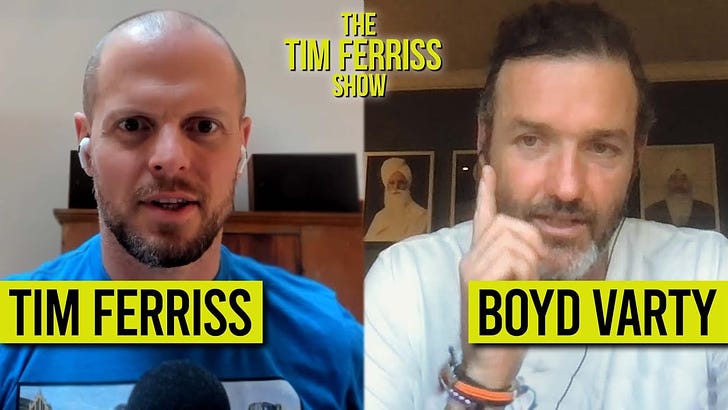Feeling "stuck" during the process of transformation
Thoughts on why we get stuck and how to get unstuck
Feeling "stuck" during a life transition is common. It's also very uncomfortable, so it sucks when it happens.
Why do we get stuck?
Stuckness occurs when decisions aren't made. Specifically, it's when the intellectual mind takes over and recursively analyzes all possible scenarios, looking for a perfect next step. No such thing exists. That's the first step in getting unstuck—letting go of the mind's endless attempt at finding an ideal, risk-free next step.
Recursive over-intellectualization is the curse of the modern high performer. We’ve been rewarded for most of our lives for our intellectual abilities. Consequently, we turn to our powers of analysis to find our way through the ambiguity of midlife change.
Top students turned top white-collar workers turned confused midlife transitioners.
Unfortunately, the intellect we’ve honed for a few decades is the wrong tool for figuring out where we want to go with our lives. That’s especially true when we’re answering the call of internal existential angst.
To get unstuck, the best we can do is take the next step that appeals to us most intuitively. That doesn't mean it doesn't come with fear or risk. It likely will. Yet remaining in your existing pattern of recursive intellectualization isn't the solution to getting unstuck. It's how you ended up stuck in the first place.
It’s a feeling that unlocks us, not the intellect.
Listen to the sensation of your inner guidance. Let it guide you to the next lily pad to jump to. It's almost certain that it won't be your final resting place and that the remainder of your transformation experience will unfold in that spot.
Five years ago, I was in the thick of existential uncertainty. I intuitively knew that my time in Silicon Valley and the identity I had built around tech success were ending. I could feel it in my stomach, chest, and throat. Yet I was stuck in a recursive thought loop, trying to solve the riddle of “What do I do next?” as if it were an algebra problem.
“Should I move away?”
“Should I quit work but stay here?”
“What about romantic relationships? If I move away, will I find someone somewhere else?”
My mind sought a perfect algebraic solution. “If only I could figure out the order of operations…” my mind endlessly thought.
After nearly two years in this thought loop, I finally couldn’t take it anymore and took the step that felt most intuitively right to me. My body screamed at me to leave Silicon Valley, so I did. That first intuitive step initiated a sequence of dozens of subsequent steps that unfolded over the following five years, leading me to where I am today.
That’s how the process of personal transformation works: one intuitive step into the murky void, followed by another, and so on.
To draw on Boyd Varty's analogy to lion tracking, the best we can do is search for the nearest footprint. We don't know where we'll end up, but we'll follow the next track and slowly surrender to the trail's scent, one step at a time.
“I don’t know where we are going, but I know exactly how to get there.” — Boyd Varty
A lion tracker doesn't point to a mountain five miles away and say, "That's where the lion is and where we will go." A lion tracker searches for the nearest track, moves toward it, then searches for the next track, and continues that process until suddenly, the lion comes into view.
Personal transformation and unfolding into one's authentic expression happen similarly. They don’t happen through intellectual master planning—they are inhibited by intellectualization.
If you're feeling stuck, turn inward and connect with the feeling of the next step. Then, please take it. That's all you can do in the search for aligned, authentic living. That’s how you get unstuck.
No spreadsheet can sufficiently replace the process of incremental, intuitive wandering. It’s a matter of reattuning oneself to the things that make you feel alive and following the scent of the feeling of aliveness until it leads you to where it always wanted you to be.




This was incredibly helpful. I sold my tech company three years ago, and for the first two years, I was tied up in an earn-out with the acquirer. I ended up staying an extra year, caught in a loop of debating, overthinking, and over-intellectualizing—exactly like you warn against.
Last week, I was finally freed. For the first time since 2004, I find myself without a job, CEO title, or founder role. I’m trying to lead from my heart, but it’s definitely a challenge.
Your thoughts on feeling the need to leave Silicon Valley really resonated with me. I’ve been feeling something similar about Denver—not that I have to leave, but there’s this pull toward the mountains, toward nature, and specifically, to a little place called Crested Butte.
It seems silly because location doesn't seem like the most important variable but my mind won't let it go. I keep coming back to location, almost daily, for over a year now.
I’m still figuring out what this calling means and what to do about it, but your perspective is inspiring. Thank you!
So beautifully said and timely for me.
Just yesterday, a dear friend and client told me:
“This work we do together is helping me to perceive what the next step is for the change. I don’t need to have the full path figured out. I’m gradually tracing a map”
I’ll take it as a sign that I, myself, am on the right path too 🌱